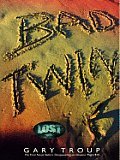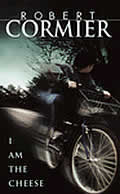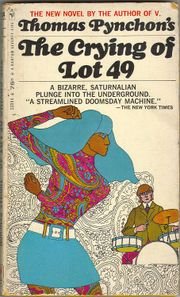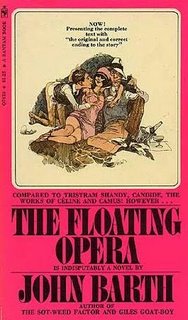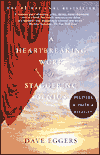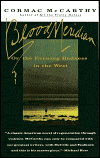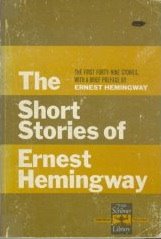 After all's said and done, I wish I could write that I thoroughly enjoyed Moby Dick. I wish I could say that the book was solid from start to finish, that I couldn't put it down, that I've ran twenty marathons.
After all's said and done, I wish I could write that I thoroughly enjoyed Moby Dick. I wish I could say that the book was solid from start to finish, that I couldn't put it down, that I've ran twenty marathons.But I cannot.
Moby Dick is a massive book about more than just a massive whale (the term "leviathan" says it best, I think). The title refers to a famed white whale with a malformed lower jaw and savagery that equals his pursuers. He's one of the largest sperm whales still alive in the sea, certainly the most ruthless, and, obsession-wise, the hardest to kill. Still, physically, he's not present in the book more than fifty pages. Most of what we see of Moby Dick is through the relentless pursuit of him by Captain Ahab on the famed Pequod.
Ishmael (of "Call me Ishmael" first-line fame) is a deck-hand on the ship and witnesses first hand this voyage of revenge. Shortly after their departure from Nantucket, what seems like a normal whaling voyage turns into a search for a whale that took the recluse Captain Ahab's leg (now filled in with whale-bone ivory). Ahab's a little pissed about their last encounter, he can't think sanely about the whole matter, so he convinces his crew that Moby Dick must be caught. By God, they agree.
And throughout all of this we get to find out every single detail of every single thing they do. What type of rope they use to string harpoons on to throw at the whales, the history of boats, the history and different kinds of whales, so much so that in the end it feels less like fiction and more like animated history.
I like history, I love historical stories, but I easily get lost in details that have no real relivance to the story. Indeed, while I was reading it, I tried to remember the time and place this book was written in, I tried to put myself in the shoes of someone wanting all of this auxiallary knowledge, I tried to imagine, in short, reading the Great American Novel (as Moby Dick started) and I just couldn't do it. I ended up trailing off, thinking about the football game, disinterested in how many feet of rope is generally loosed to account for a leeward sway while the whale runs.
Writing this review now though, after some distance from the novel itself (I finally finished it late last week), I have to take my hat off to Melville for creating a completely engrossing world. At times, I could feel myself sailing on the Pequod, and the moments chasing whales, especially Moby Dick, were so well written my knuckles were white. Spiced in also are what could be considered essays on whaling and religion and philosophy that I found quite interesting, only I wasn't ready for them in a fiction book. I got them nonetheless, and, after some getting used to, was glad for it.
What Melville does best is create allegory with intense realism that gives the story so many more layers. He finds the metaphors in life, and gives them meaning. In the end, that's what makes this a Great American Novel, and though it may be a while, maybe never, until I read this novel again, I will never forget its message of savagery and revenge and the utter desperate tragicness of those wasted emotions that comes so clearly across in the story.
I'd still recommend it, but with two precautions. One, know that there is a lot of extra information, maybe pertinent, maybe not, you get out what you put in. And two, be ready for a committment, because this novel demands it.
Oh, and three, if you see a whale, the proper terminology is always, "There she blows!" because you spot a whale when she breathes, from the water that comes out of her spout.
Ishmael.


